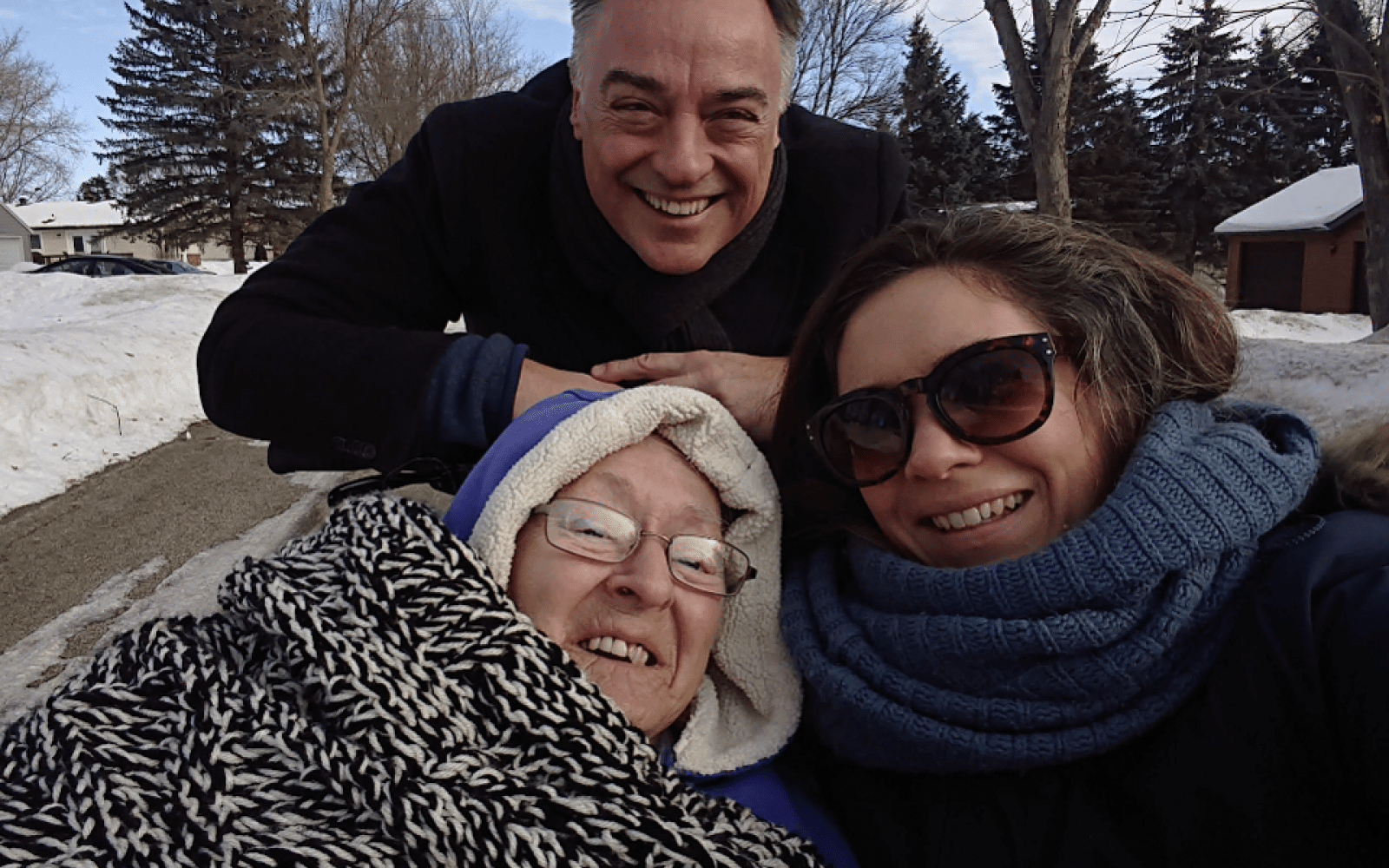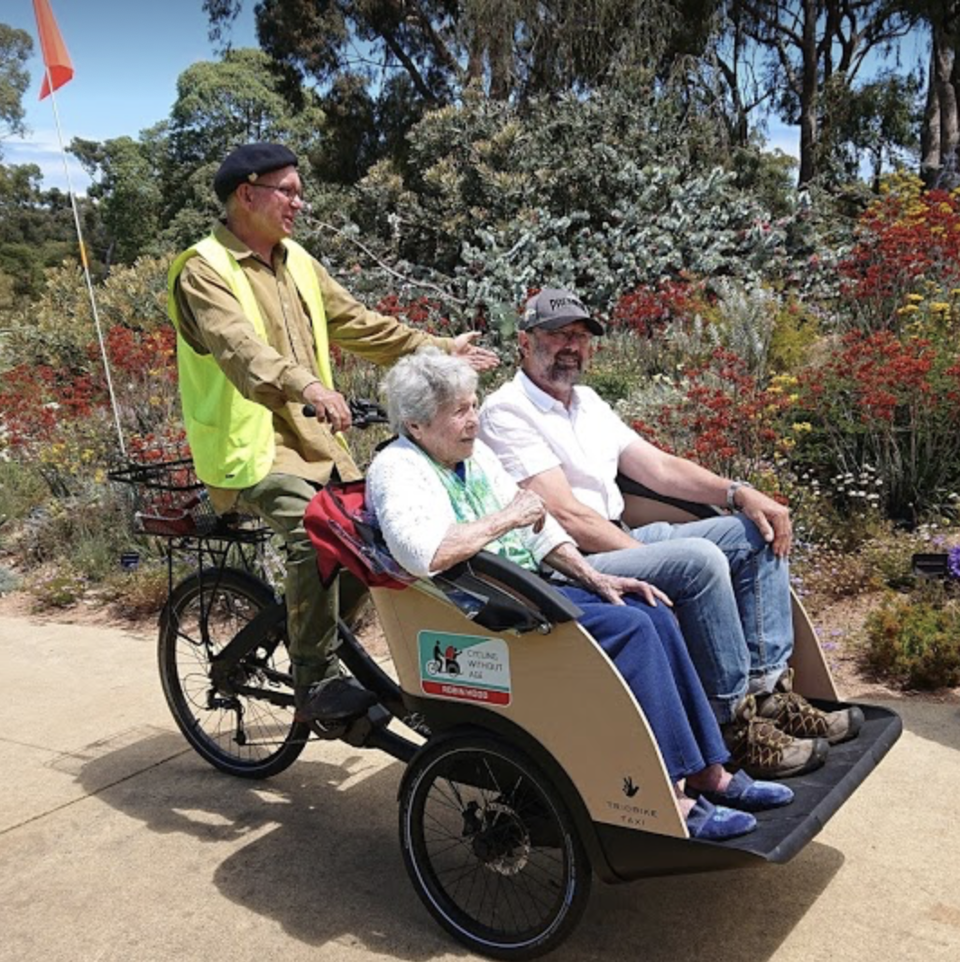The Right To Relate: Cycling Without Age

This article originally appeared on Forbes
What is Cycling Without Age?
We're a global movement of about 2200 chapters in 50 countries, with over 33,000 volunteers. Anybody anywhere can set up a chapter and become an affiliate. It’s completely free of charge. We offer guidance but people also generate amazing ideas that others pick up and copy. So we’re not a typical non-profit organization, we are the hub that serves to connect many changemakers. Until the coronavirus, we were growing rapidly, by more than 100% over some quarters, practically recognizing a new chapter every single day. Our role is to shape the movement with guiding principles.
What are the principles and where did they come from?
Essentially, the problem that we're addressing is social isolation and loneliness associated with old age. We have five principles: generosity, slowness, storytelling, relationships and without age. I’ve been fascinated by generosity my entire life. My dad was in a wheelchair and I saw how much people communicate through generosity, their willingness to reach out. People connect by telling stories, sharing, listening—this kind of interpersonal communication is also a principle. Besides, we should think of relationships as a basic human right—they are fundamentally important to our well-being. Regarding slowness principle, when you slow down you become aware of things, marvel at things, and you discover a goodness you wouldn't otherwise discover. And finally, “without age.” Of course, it's part of our name, but it also means that we don't want any discrimination of any kind.
Who are the volunteers?
Out of the 33,000 volunteers we can see some patterns and groups. One group is people approaching retirement, or just after retirement. We have been conditioned to define ourselves by our professions. You're a doctor, or you're a police officer, or you're a nurse, or you're ... whatever you are, a carpenter, then once you retire what are you? With time on your hands, you start looking for new meaning. Cycling Without Age is a chance to relate while getting fresh air and exercise. It ticks a lot of boxes.

Naturally we have a lot of young volunteers, university age to mid-twenties. Many young people feel a genuine sense of solidarity with the elderly. We are working on matching university students with nearby care homes, with the idea of building long-term relationships while students are away from home and often living in a strange city. Riding around with people who have lived for half a century or more in a place is a great way to learn about the city and build local relationships.
Older people are more confined than ever right now, how is CWA adapting?
Now is a time when people can feel the value of empathy. It’s easier for all of us to understand feeling isolated or vulnerable. I've seen volunteers visit homebound elders and speak, even sing, to them through the window, just to let them know they are not forgotten, not alone, and that after the pandemic we will go riding again. In Portugal, in both Lisbon and Porto, we have fantastic chapters where volunteers have organized the fleet of trishaws into a shopping and delivery service for groceries and medications.
I have also been experimenting with something, just filming the view from a trishaw ride, without passengers. One volunteer pedals, the other films from the seat, just with an iPhone. You can watch online as if you are riding along. Now someone in Minnesota can enjoy a bike ride through Copenhagen. Last weekend we filmed in the forest. It had snowed overnight, which drew a lot of interest in the home. We narrate, talking to our friends. “Now we're riding past a tattoo parlor and it's closed now. All these shops are closed.” Maybe we address some of the older gentlemen, “I know you have a tattoo. Where did you get it?” So, it keeps the relationships going and it keeps the spirit, hope, and sense of shared adventures going.
Do you have corporate partners?
Yes. We have some great corporate partnerships, mainly with tech companies. Salesforce and Zendesk and Slack are some examples. We are part of cities changing diabetes that’s ready to go with Novo Nordisk in 23 major cities around the world, but temporarily on hold because of the coronavirus. We're actively looking for corporate partners who match with our guiding principles.
Where do you hope that this experience with the pandemic takes us?
Societies are shifting like tectonic plates right now. There are opportunities for big change. Why do so many of us expect to live in loneliness and isolation in old age? We can structure society to create isolation or we can structure it to prevent isolation. Imagine a standard for the quality of relationships—to operate a retirement home you must guarantee opportunities to build relationships. The Canadian psychologist Susan Pinker has an amazing TED Talk about the importance of being socially connected, having close relationships in old age, strong ties to others. As she describes and as we know from our work, happiness and quality of life improve.
Ole Kassow is an Ashoka Fellow. You can read more about him here and follow him on Twitter @OleKassow and @CycleWithoutAge